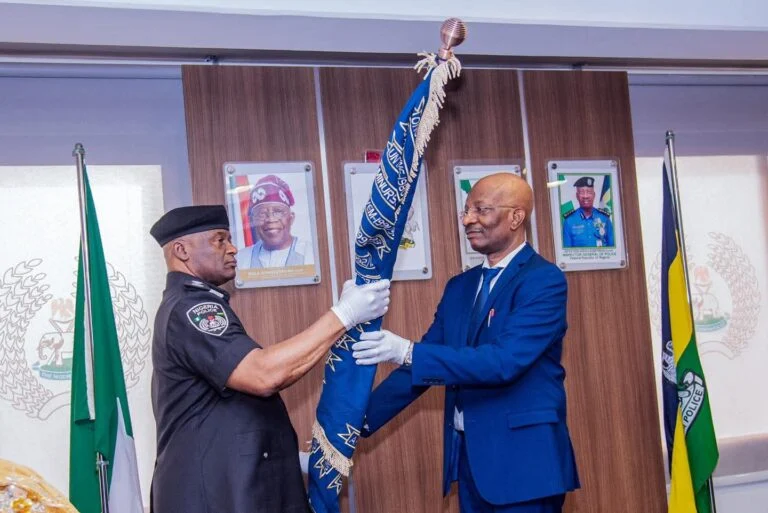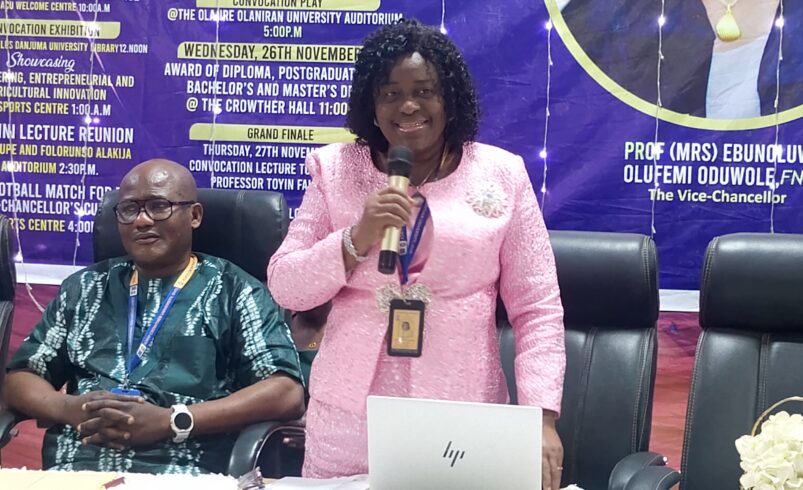By: Lauretta Fagbohun, Abeokuta.
Nigeria is today confronted with a security crisis more alarming than at any other time in the nation’s recent history. What began over a decade ago as isolated confrontations in remote Northern communities has evolved into a nationwide emergency defined by mass killings, kidnappings, and the rapid expansion of violent criminal networks.
While many of these criminal elements include individuals of Fulani origin, particularly those involved in banditry and armed herder conflicts, it is important to state clearly that the violence is driven by not just criminality, but also a coordinated ethnic and religious agenda.
Nonetheless, the reality remains that these groups have continued to spread geographically, expanding their reach from the Northwest to the North-Central, and now inching dangerously closer to the Southwest.
The roots of the current crisis can be traced to Zamfara State in the Northwest, where disputes over cattle rustling, mining activities, and community reprisals created the conditions for heavily armed gangs to form. From there, the violence spilled into Katsina, Sokoto, and Kebbi, where forest reserves and porous borders provided cover for these groups to recruit, reorganise, and expand.
With time, the pressure from military operations in these areas pushed many of the armed gangs further into the North-Central region, particularly Niger, Kogi, Benue, and Plateau States.
These areas, already plagued by long-standing farmer-herder tensions, became fertile ground for the escalation of violence as bandit groups established camps, exploited local conflicts, and used the region as a corridor for further movement.
The recent rise in attacks in parts of Kwara State signals a deeply troubling development. Kwara, which lies directly between the core northern conflict zones and the Yoruba Southwest, has historically served as a buffer. However, the infiltration of armed groups into rural Kwara communities shows that this buffer is weakening.
Reports of raids, kidnappings, and killings, such as the recent attack on a church where worshippers were murdered and abducted, indicate that the southward movement of these criminal networks is no longer hypothetical. It is happening in real time.
Kwara’s forests and border towns, linked directly to Niger and Kogi States, now serve as entry routes for the same groups responsible for ravaging large portions of the North.
The South has already witnessed troubling signs of this expansion in recent years, though on a smaller scale. Highways in Oyo, Ogun, Osun, and Ondo have seen sporadic kidnappings linked to criminal groups traveling through forest corridors. Several incursions into Ondo and Ekiti forests led to the establishment of the Amotekun Corps, a regional security outfit created to counter rising threats.
While these incidents did not escalate into widespread regional violence, they confirmed that the Southwest was not untouchable. The ongoing pressure in the North suggests that these groups will continue moving into areas where they perceive weaknesses in security infrastructure.
Despite its relative peace, the Southwest cannot afford complacency. Criminal groups involved in banditry are highly mobile, well armed, and accustomed to navigating difficult terrain. They exploit forest belts, political distractions, and jurisdictional gaps between states.
As Nigeria approaches the 2027 election season, the risk of political leaders shifting focus away from security becomes even greater, creating opportunities for criminals to establish footholds in previously calm areas.
If the Southwest does not act now, the region may find itself overwhelmed by threats that could have been prevented.
This is why strengthening the Amotekun Corps is no longer optional. While Amotekun has proven effective in community policing and intelligence gathering, its current level of equipment and legal authority is insufficient to confront the kind of heavily armed groups now active in parts of the country.
The governors of the Southwest must enhance the capacity of Amotekun through modern surveillance tools, improved training, stronger legal backing, and seamless coordination across state lines. The region must also invest in early-warning systems that enable communities to report suspicious movement quickly, especially in border towns and forested zones.
The time to reinforce these structures is now, before criminal elements establish camps or begin operating with the boldness seen in the Northwest and North-Central.
The warning signs are clear. Every delay, every political distraction, and every assumption that the Southwest is safe by default only invites danger. History shows that insecurity spreads rapidly when ignored. If the leaders of the Southwest continue to focus on political ambitions rather than immediate security needs, they may soon face a crisis far more difficult to contain.
The task before them is urgent; prioritise the safety of the region, reinforce security architecture, and act decisively before the threat becomes irreversible. The time for the Southwest to protect itself is now, before it is too late.













